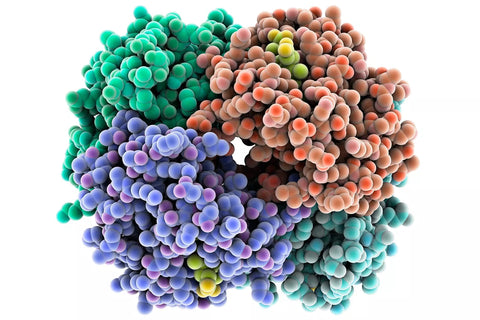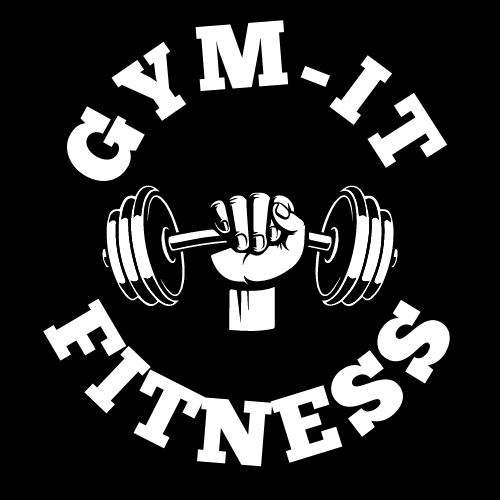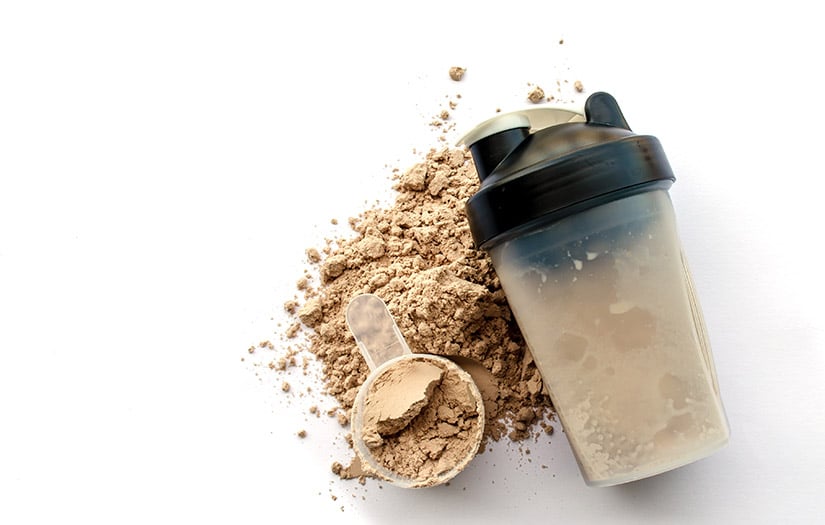What is Whey?
We all know that the world has taken quite a turn in the area of fitness. It seems like everyone is in the gym becoming a "gym bro" or a "muscle mommy". The influencers are taking over and pushing fitness. Don't get me wrong, health and wellness are great things for many reasons.
But what is everyone talking about and where is everyone getting their knowledge from?
What do you do when you don't know the fundamentals or basics? What do you do when someone is talking about protein shakes or how much protein or too much protein they are consuming?
Well, we got you covered. I am not going to go over every single protein supplement out there. However, I will take you on a protein journey!
I am going to give you the rundown on the whey protein supplementation game. I am going to take you through the basic three types of the consuming whey protein and whey proteins and whey protein supplements and run them down to the more intense types of the whey protein supplements and whey proteins that now that are on the shelves.
But before we begin, let's get to ground level on what exactly protein is, just in case you forgot!
So, grab your shaker, and let's roll!

What is Protein?
Protein is a macronutrient that is found throughout our whole body. You can find it in muscle, bone, hair, skin, and basically every body part or tissue. Protein makes up the enzymes that motivate oxygen to be moved through our blood. We have at least 10,000 different proteins that make what we call our body.
They are large, complex molecules that are essential for life. They are made up of long chains of amino acids, which are linked together by peptide bonds.

What are the Health Benefits?
Proteins serve many important roles in the body, including serving as enzymes, structural components of cells and tissues, and signaling molecules. They play a part in metabolism, DNA replication, and cell division, and they help to regulate the body's immune system.
Proteins are also found in many different foods, including meat, dairy products, legumes, and grains, and they are essential for maintaining good health.
The more popular of the building blocks of protein is called amino acid which our body does not store so we have to create them from scratch or modify others. There are nine amino acids that you might hear people call protein supplements "the essential amino acid" that comes from food.
According to the Mayo Clinic, the daily recommended(minimum) dose of protein to prevent deficiency for an adult is 0.8 grams for every kilogram of your lean tissue mass, muscle mass and body weight. To build up your lean body mass, muscle, fat mass and body composition, the general rule of thumb is 1 gram for every pound of your lean tissue mass, body mass and weight.
What is Protein Powder?
Protein powder is a dietary supplement that is commonly used to increase protein intake. It is typically made from various types of whey protein,, or casein protein, soy, or a combination of these protein sources, and is available in various forms, such as powders, whole protein bars,, and ready-to-drink shakes. The powders usually include other ingredients like added sugar, artificial flavoring, thickeners, vitamins, and minerals.
Protein powder is used by many people, including athletes, bodybuilders, and people trying to lose weight, as a convenient and easy way to increase their protein intake.
Proper protein intake is important for your weight loss and body fat and weight loss too, building and repairing muscle tissue, as well health benefits such as maintaining bone health, and protein powder can be a convenient way to ensure that you are meeting your daily protein needs. Protein powder can also be used as a meal replacement or as a snack to help control hunger and support your weight and lean muscle loss and body fat loss.
Ok, so now that we are on the same page regarding what protein and how much protein the powder is and what it does, let's get to the fun stuff.

What is Whey?
Whey is one of the two components found in human milk itself, the other being casein. When the cow's milk is processed into cheese production, whey is left behind as a by-product and it can be dried and turned into a whey protein powder form. This liquid whey whey protein powder is then what we know as whey protein.
What is Whey Protein Concentrate(WPC)
This is the most commonly available type of whey protein concentrate, or whey protein powder. It contains about 70-80% whey protein concentrate and also contains some lactose, fat, and carbohydrates. It is usually the most affordable type of the whey protein concentrate or whey protein powder.
What is Whey Protein Isolate (WPI)
This type of the whey protein isolate and whey protein powder has a higher whey protein isolate content, typically around 90% or higher. It undergoes additional processing to remove more of the lactose, fat, and carbohydrates from liquid making it a good option for those who are lactose intolerant or watching their calorie intake.
What is Whey Protein Hydrolysate (WPH)
This type of whey protein concentrate, goes through additional processing to break down the whey protein concentrates into smaller fragments, making it easier and faster to digest. It is a top whey protein concentrate and supplement most often used in sports nutrition products due to its quick absorption and ability to rapidly increase muscle protein synthesis. However, it can be more expensive than the other two types of whey protein, top whey protein concentrate and hydrolyzed whey.
Now that we have some of the basics down for the various types of proteins, milk proteins, and protein powder forms, let's get to the rest of the gang.
What is Casein Protein Powder?
Roughly 80% of cow's milk is made up of casein and other types of whey protein, and whey protein isolate makes up the rest. Casein is slower in digestion and is often taken before bed or during long fasting periods. Casein is the more optimal choice when it comes to meal replacement due to the long digestion period. Casein also has lactose in it and is an important factor for those who have allergies or sensitivities.
What is Soy Powder?
Soy protein powder is made from soybeans, which are high in protein content and a great source of plant-based proteins. It is commonly used by vegans and vegetarians to increase their dietary protein intake. It does not have any animal products, making it suitable for those who follow a vegan or vegetarian lifestyle.
Soy protein contains all the essential amino acids, as well as several other beneficial nutrients such as fiber, calcium, iron, and B vitamins.
Soy protein powder can be found in various forms, including isolate, concentrate, and textured soy protein. Isolate soy protein powder is the most highly processed form of milk protein ever, containing up to 90% protein with little to no fat or carbohydrates.
Concentrate soy protein powder contains around 70% protein and may have some fat and carbohydrates. Textured soy protein is made from defatted soy flour and has a meat-like texture, making it a popular meat substitute in vegetarian and vegan diets.

What is Pea Powder?
Pea protein powder is a type of protein derived from yellow peas. Pea protein is a popular choice for vegetarians and vegans as it is a plant-based protein source that is free from dairy and animal-based products. It is also hypoallergenic, making it a good option for those with food allergies or intolerances.
Pea protein powder is a high-quality protein source that is rich in branched-chain amino acids (BCAAs), which are important for muscle growth and repair. It is also easily digestible, making it a good option for those with digestive issues.
Pea protein powder is often used as a protein supplement in sports nutrition and weight loss products, as it can help to support muscle growth and repair while also promoting satiety and reducing cravings. It can also be used as a dietary supplement to increase protein intake in those with low-protein diets or those looking to meet their protein needs without consuming animal-based products.
Pea whey protein hydrolysate powder is available in various forms, including both whey protein isolate, and whey protein concentrate. Pea whey protein hydrolysate contains up to 90% protein with little to no fat or carbohydrates. Pea whey protein hydrolysate concentrate only contains around 80% protein and may have some fat and carbohydrates.

What is Rice Protein Powder?
Rice protein powder is derived from brown rice. It is another popular choice for vegetarians and vegans as it is a plant-based protein source that is free from dairy and animal-based products.
Rice protein powder is a high-quality protein source that is rich in essential amino acids, making it a complete protein. It is also easily digestible, making it a good option for those with digestive issues.
Rice protein powder is often used as a both weight loss and body fat loss product, as it can help to both fat loss and support muscle growth while also promoting satiety and reducing cravings. It can also be used as a dietary supplement to increase protein intake in those with low-protein diets or those looking to meet their protein needs without consuming animal-based products.

What is Hemp Protein Powder?
Hemp protein powder is a type of protein that comes from the seeds of a hemp plant. Hemp protein is a popular choice for vegetarians and vegans.
Hemp protein powder is a high-quality protein source that is rich in essential amino acids, making it a complete protein. It is also a good source of fiber, healthy fats, and other beneficial nutrients such as iron, magnesium, and zinc.
Hemp protein powder comes in isolates and concentrates as well. Hemp protein isolate is the most highly processed form, containing up to 90% protein with little to no fat or carbohydrates. Hemp protein concentrate contains around 50-70% protein and may have some fat and carbohydrates. It is worth noting that hemp protein powder may have a slightly nutty or earthy flavor, which is not for everyone.
According to an article about hemp on Dr.axe.com, hemp typically contains about 0.3 percent to 1.5 percent THC, whereas marijuana contains about 5 percent to 10 percent or more THC. This one is perfect for you 420 lovers!

What is Egg Protein Powder?
Egg protein powder, you guessed it, comes from eggs. It is a high-quality protein that is rich in essential amino acids, particularly leucine, which is important for muscle growth and repair.
Egg protein powder is also easily digestible and has a high biological value, which means that it the protein composition is easily utilized by the human body. It is also free from lactose and gluten, making it a good option for those with food allergies or intolerances.
This protein has helped decrease malnutrition, improve muscle health, increase satiety(feeling full), and contributes to weight loss too, according to "The National Library of Medicine"
Egg protein powder is available in various forms, including: whey protein isolate and whey protein concentrate. Egg whey protein isolate is the most highly processed form whey protein powder, containing up to 90% protein with little to no fat or carbohydrates. Egg whey protein isolate and concentrate contains around 70% protein and may have some fat and carbohydrates.

What is Grass Fed Protein Powder?
Grass-fed protein refers to protein sources that come from animals that are raised on grass or pasture-based diets, rather than grain-based diets. This includes grass-fed beef, grass-fed whey protein, and grass-fed collagen.
Grass-fed protein is often considered to be a higher quality protein source than conventionally raised animal protein sources, as animals that are raised on grass or pasture-based diets tend to have a higher nutrient density and lower fat content. This is because grass and other pasture-based plants contain higher levels of nutrients such as vitamins, minerals, and antioxidants, which are then passed on to the animals that eat them.
Grass-fed protein is also considered to be more environmentally sustainable, as pasture-based farming methods tend to be more environmentally friendly than conventional grain-based farming methods.
What is Collagen Protein Powder?
Technically speaking, collagen is not a protein powder, according to "Collagen Powder vs. Protein Powder: What's Right For You?". Collagen has a very different set of the protein and amino acids too. But, I feel as if it is related. Look at collagen as protein powders' little brother.
Collagen powder comes from collagen, a protein that is found in connective tissue, bones lean muscle, and skin of animals. Collagen protein is a popular choice for those looking to support joint and health benefits, skin and health, gain muscle mass and benefits, increasing muscle mass and benefits, and other health benefits and overall wellness.
Collagen protein powder is rich in amino acids such as glycine, proline, and hydroxyproline, which are important building blocks for the body's connective tissues. It is also a good source of protein and is easily digestible.
Collagen protein powder is often used to support muscle growth and repair while also promoting satiety and reducing cravings. It can also be used as a dietary supplement to support joint health body, weight and fat loss, and improve skin elasticity and hydration.
Collagen protein powder is available in various forms, including hydrolyzed collagen peptides, which are more easily absorbed by the human body, and gelatin, which is derived from collagen but has a gelling effect when mixed with liquid. It is worth noting that collagen protein powder is not a complete protein source, as it is low in some essential amino acids such as tryptophan, so it should not be relied on as the sole source of protein in the diet.
To wrap it all up!
Now that you know all about the various types of protein available, from whey and egg protein to grass-fed and collagen proteins, it's time to choose the right one for your health and fitness goals! Whether you're looking to build muscle, support joint health, or just get an extra boost of protein in your diet, there is a protein powder out there that can help you reach your goals. So don't wait any longer - start shopping for your perfect protein powder today! And if you want to learn more about each type of protein powder before deciding which one is best for you, be sure to check out us at Gymit.shop. Let your journey begin!


